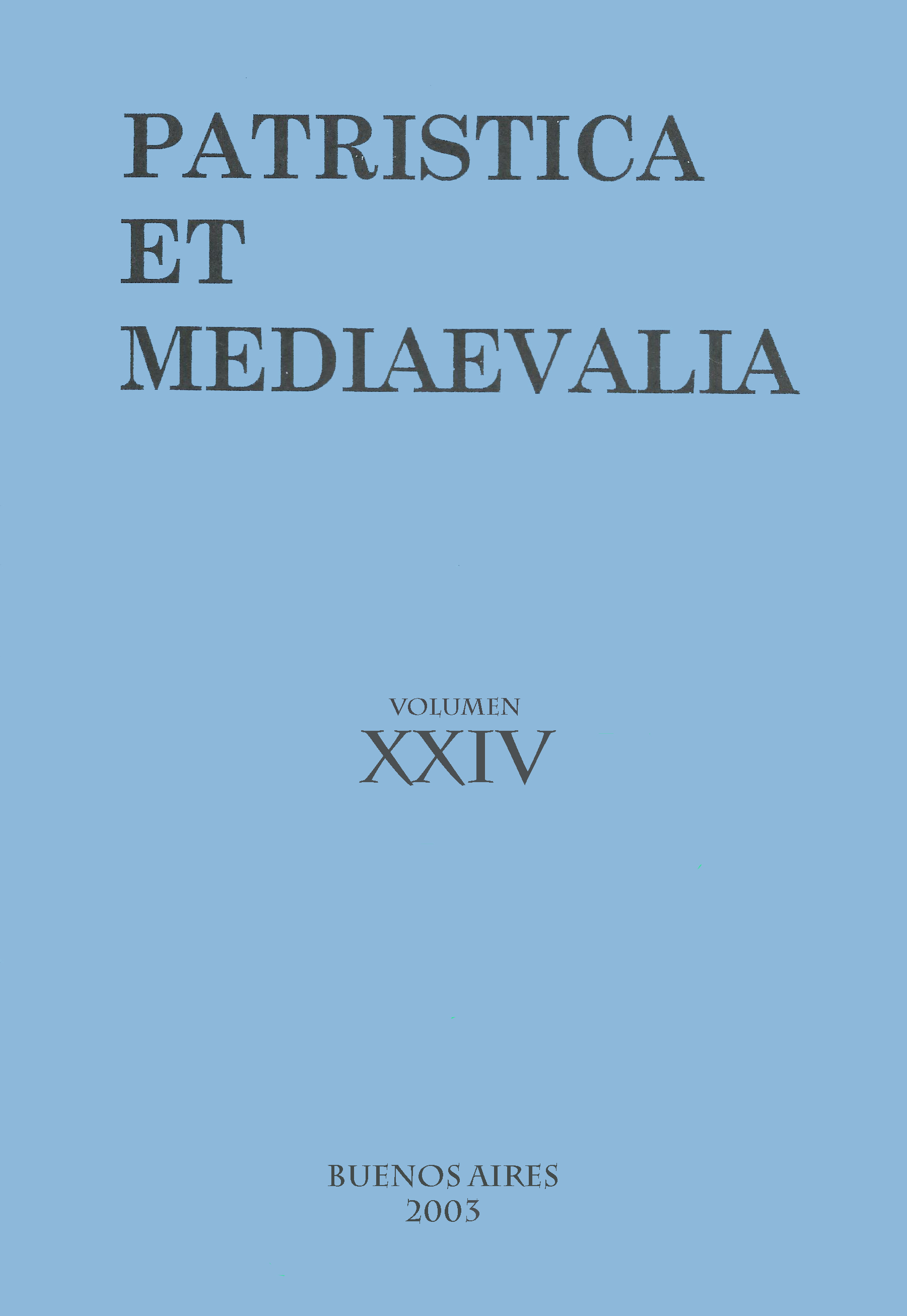Between Authority and Freedom: the Consensus, Main Idea of the Political Theory of Nicholas of Cues
Abstract
In De concordantia catholica, Nicholas of Cusa develops two seemingly contradictory views of government. In book I, he derives all power from an upper source and builds up a monarchic conception of the Church and the State. Differently, in books II and III he stresses the dependence of government on the consent of subjects, which makes of him a pioneer of democratic formulations of government. The author of the article shows that Nicholas of Cusa (1) frames these two seemingly contradictory views within a broader theologic-christologic thesis. This thesis holds that all government must derive from both humane and divine sources, which allows the author to conclude that (2) Nicholas’s singular statements on the radical freedom of man (naturally a gift of God) and on the limitations –to be exerted by control commissions– of both ecclesiastical and temporal powers set the ground for the development of a democratic thought founded on human rights.Downloads
References
Albengo, G. (1981). Chiesa conciliare, Identità e significato del conciliarismo. Brescia: Paideia Editrice.
Black, A. (1992). Political Thought in Europe, 1250-1540. Cambridge: Cambridge University Press.
Ehses, St. (1911). Der Reformentwurf des Kardinals Nikolaus Cusanus. Historisches Jahrbuch der Görresgesellschaft, 32, 274-297.
Hartmann, St. (1997). Trinitätslehre als Sozialkritik? Das Verhältnis von Gotteslehre und Sozialkritik in den trinitätstheologischen Entwürfen von Jürgen Moltmann und Leonardo Boff. Frankfurt am Main: Peter Lang.
Hoye, W. J. (1999). Demokratie und Christentum, Die christliche Verantwortung für demokratische Prinzipien. Münster: Aschendorff.
Kallen, G. (1963). Die handschriftliche Überlieferung der Concordantia catholica des Nikolaus von Kues. Heidelberg: Heidelberg Winter.
Krämer, W. (1978). Das Menschenbild im politischen Denken des Nikolaus von Kues. Mitteilungen und Forschungsbeiträge der Cusanus-Gesellschaft, 13, 225-233.
Krämer, W. (1980). Konsens und Rezeption, Verfassungsprinzipien der Kirche im Basler Konziliarismus. Münster: Aschendorff.
Kremer, K. (1994). Konkordanz und Konsens in Kirche und Respublica Christiana, Inhaltliche Tragweite und geschichtlicher Hintergrund. En Kremer, K. & Reinhardt, K. (Hrsg.). Nikolaus von Kues, Kirche und Respublica Christiana, Konkordanz, Repräsentanz und Konsens, Akten des Symposions in Trier vom 22. bis 24. April 1993. Trier: Trier Paulines, 231-265.
Kremer, K. & Reinhardt, K. (Hrsg.) (1994). Nikolaus von Kues, Kirche und Respublica Christiana, Konkordanz, Repräsentanz und Konsens, Akten des Symposions in Trier vom 22. bis 24. April 1993. Trier: Trier Paulines.
Lücking-Michel, C. (1994). Konkordanz und Konsens, Zur Gesellschaftstheorie in der Schrift “De concordancia católica” des Nicolaus von Cues. Würzburg: Echter.
Pukelsheim, F. (2002). Auf den Schultern von Riesen: Lull, Cusanus, Borda, Condorcet et al. Litterae Cusanae, Information der Cusanus-gesellschaft, 2, 3-15.
Reinhardt, K. (1994). Die Repräsentation Christi und der Christgläubigen im kirchliche Amt. En Kremer, K. & Reinhardt, K. (Hrsg.). Nikolaus von Kues, Kirche und Respublica Christiana, Konkordanz, Repräsentanz und Konsens, Akten des Symposions in Trier vom 22. bis 24. April 1993. Trier: Trier Paulines, 183-202.
Reinhardt, K. (1995). Concordancia católica, El concepto de la sociedad cristiana en Nicolás de Cusa y Juan de Segovia. Cuadernos Salmantinos de Filosofía, 22, 39-50.
Reinhardt, K. (2001). Herrlichkeit als Grundwort cusanischer Theologie, Eine Analyse des Sermons CCIV. Trierer Theologische Zeitschrift, 110, 308-318.
Rucquoi, A. (1995). Démocratie ou monarchie, Le discours politique dans l’université castillane au XVe siècle. En Guglielmi, N. & Rucquoi, A. (coord.). El discurso político en la Edad Media / Le discours politique au Moyen Age. Buenos Aires/Paris: CONICET, 233-255.
Schindler, A. (Hg.) (1978). Monotheismus als politisches Problem, Erik Peterson und die Kritik der politischen Theologie. Gütersloh: Gütersloher Verlagshaus.
Schwätzer, H. (2001). ‘Sei du das, was du willst!’, Die christozentrische Anthropologie der Freiheit in Sermon CCXXXIX des Nikolaus von Kues. Trierer Theologische Zeitschrift, 110, 319-332.
Sigmund, P. E. (1964). Nicholas of Cusa and Medieval Political Thought. Cambridge, MA: Harvard University Press.
Sigmund, P. E. (1998). Repräsentation und die Herrschaft der Mehrheit bei Marsilius und Cusanus. Mitteilungen und Forschungsbeiträge der Cusanus-Gesellschaft, 24, 195-204.
1. The authors who publish in this magazine accept the following conditions:
-
They retain the copyright and grant to the magazine the right of the first publication, with the work registered under the Attribution-ShareAlike 4.0 International License that allows third parties to use what is published as long as they mention the authorship of the work and the first publication in this magazine.
-
They can make other independent and additional contractual agreements for the non-exclusive distribution of the version of the article published in this magazine (eg. include it in an institutional repository or publish it in a book) provided that they clearly indicate that the work was first published in this journal.
-
They are allowed and recommended to publish their work on the Internet (for example on institutional or personal pages).
2. AutoArchive Conditions. Authors are allowed and encouraged to distribute post-print electronic versions of their manuscripts because it promotes their circulation, a possible increase of quotation and a major reach among the Academic community. Color RoMEO: blue.













